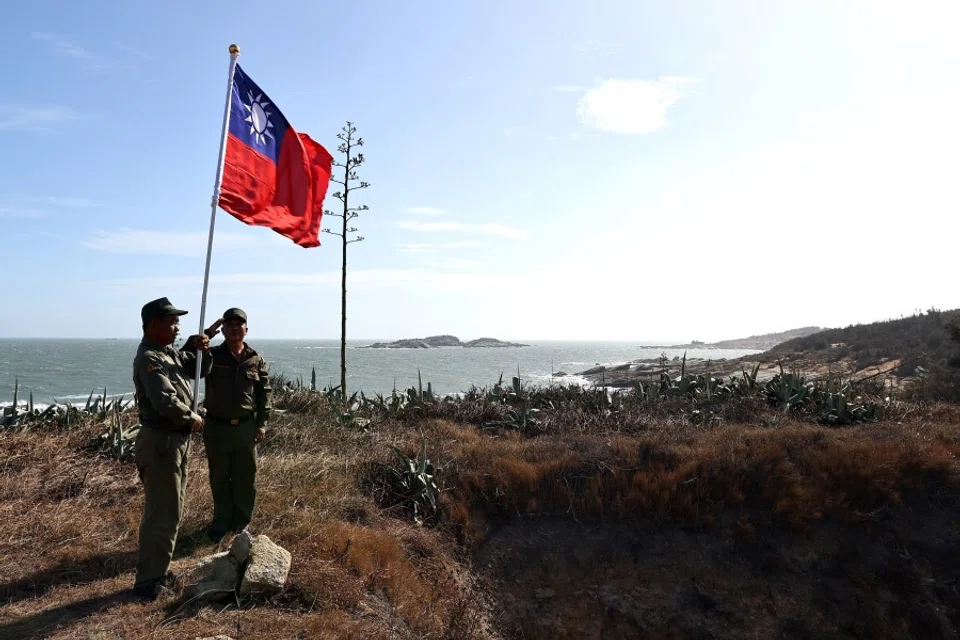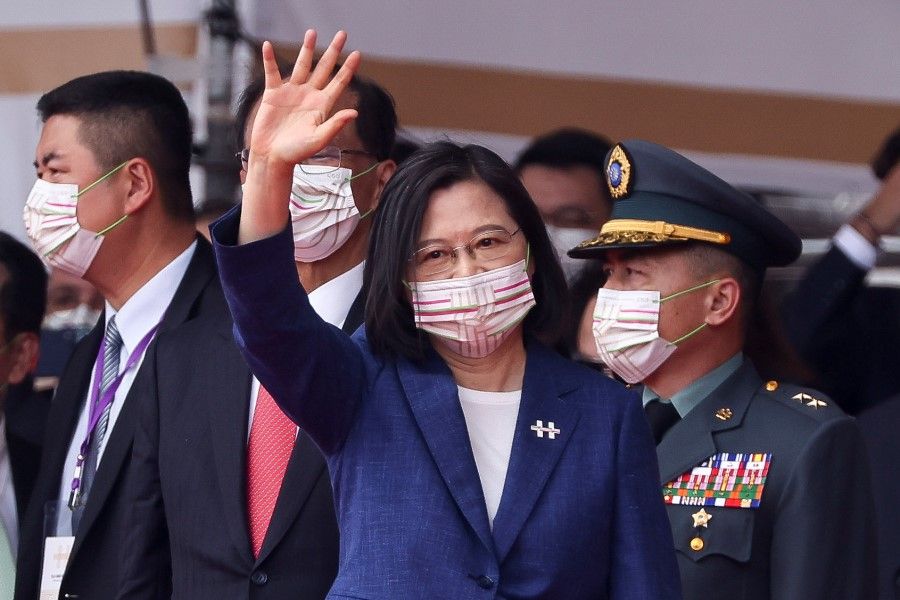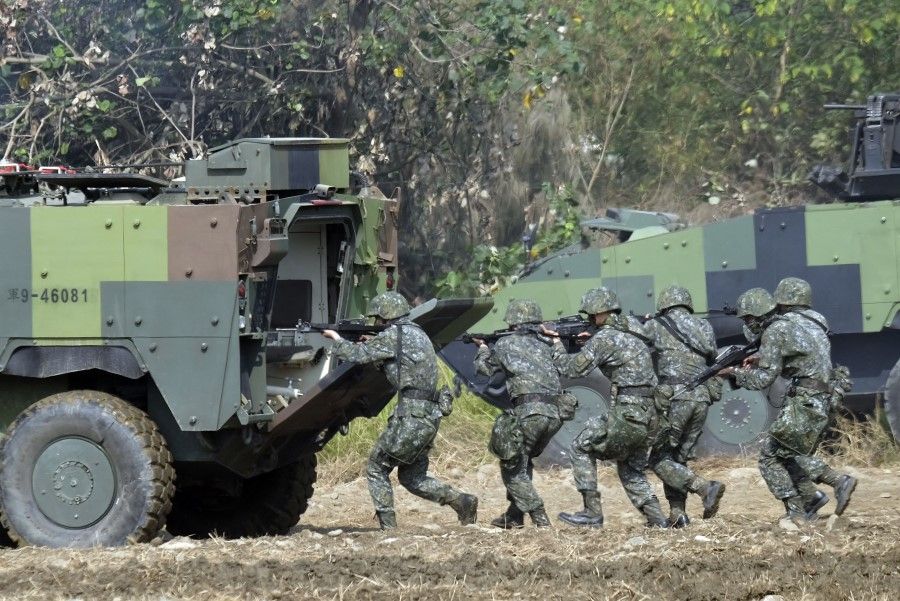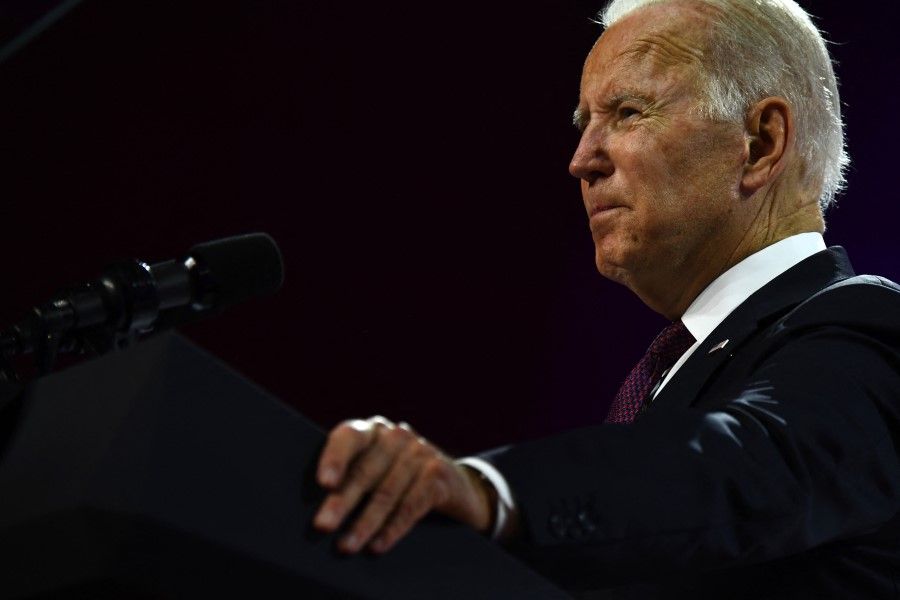Why the status quo in the Taiwan Strait is quietly changing

On 21 October, US President Joe Biden said the US was committed to protecting Taiwan; on 26 October, US Secretary of State Antony Blinken stressed that "Taiwan's meaningful participation in the UN system is not a political issue, but a pragmatic one," calling on all UN members to support the US.
But behind this rhetoric in support of Taiwan is a certain criterion - aligning with the US's "one China" policy. After Biden's statement, a White House spokesperson said "there is no change in our policy", while Blinken said this is "consistent with our 'one China' policy, which is guided by the Taiwan Relations Act, the three Joint Communiques, and the Six Assurances."
...it is undeniable that all involved parties of the Taiwan Strait are in fact quietly changing this status quo.
The 'status quo' of both sides of the Taiwan Strait being challenged
And this is the intriguing part about the current situation in the Taiwan Strait - everyone emphasises maintaining the status quo in the Taiwan Strait, but it is undeniable that all involved parties of the Taiwan Strait are in fact quietly changing this status quo.
Even if Biden and Blinken's comments are to a certain extent diplomatic publicity to satisfy anti-Chinese sentiment in the US and to unite US allies, and declare US support for democratic politics, such comments, coupled with frequent US military movements in the West Pacific, are clear indicators of the result: the situation in the Taiwan Strait is constantly changing.

Similarly, on Taiwan's part, President Tsai Ing-wen has stressed that there will be no intentional provocation of mainland China, or creation of any crisis in the Taiwan Strait. However, her comments, including those made on 10 October, still have the potential to stir a crisis in the Taiwan Strait, like the one created by former President Lee Teng-hui.
While the various parties are vigorously denying the resurgence of the Cold War, the current situation in the Taiwan Strait and the developments in China-US relations draw attention to the fact that for these leaders who grew up during the Cold War, the Cold War mentality is in their subconscious. Even if they deny the resurgence of the Cold War and try to avoid it, they may not be able to prevent the Cold War as an outcome. There may be meaning and value in rethinking why the US-Soviet Cold War began - different ideas of security may be a trigger.
Different security threat perceptions may colour calculations
It should be said that after World War II, to some extent the US's foreign policy was forced into being. The Soviet Union's ideology-based foreign policy threw post-WWII Europe and the US into enormous uncertainty, while Soviet influence in Central and Eastern Europe prompted the US to respond with the Marshall Plan, as developing the economy was the best weapon against the Soviet ideological onslaught.

And in line with the thinking of post-WWI US President Woodrow Wilson, the US was again trying to build international groupings to achieve international peace and avoid war. After all, WWII was on a far different scale than WWI, or any other European war. The consequences of war were enough for people of the time to understand the importance of achieving and maintaining peace.
However, Soviet ruler Joseph Stalin and US President Harry S. Truman had different ideas of security. An obsession with ideology led to an aggressive and rigid Soviet foreign policy and a lack of diplomatic flexibility. Decades later, such a mindset still guided the foreign policy of Soviet leaders. While the US and Soviet Union tried to ease the situation, the failure of such efforts exacerbated the US-Soviet competition.
In particular, US President Ronald Reagan saw that the Soviet economy would not be able to overtake the US - the US was far ahead of the Soviet Union in the computing field, which was a major force in the new age economy. So, as US-Soviet competition intensified, the Soviet Union, without the support of its economy, moved towards its ultimate end.
If the Biden administration wants to really maintain regional stability and effectively manage China-US relations to avoid creating sudden risks, then understanding China's idea of security and checking its own actions is clearly more important than simply declaring support for democracy.

The current US president is using support for democracy to strengthen other countries' approval of the US's leadership status, and is competing with China based on this. From the US's perspective, no doubt this is the best thing to do; apart from Donald Trump, the other US presidents would generally agree.
A need to go beyond ideology
But in the context of China-US competition, each side's different ideas of international stability and regional security goes beyond their ideological opposition. If the Biden administration wants to really maintain regional stability and effectively manage China-US relations to avoid creating sudden risks, then understanding China's idea of security and checking its own actions is clearly more important than simply declaring support for democracy.
In particular, when US media blasts news of military aircraft from mainland China entering the southwestern part of Taiwan's air defence zone but overlooks that the US and the UK are carrying out military exercises with three aircraft carriers and 200 fighter aircraft. This is far more than the number of Chinese military aircraft over the same period, and might put pressure on Beijing. This might be what Biden considers balancing the rise of Beijing's military strength, while his comments on "protecting" Taiwan is also a form of balancing, in some sense.
But is this really balancing?
